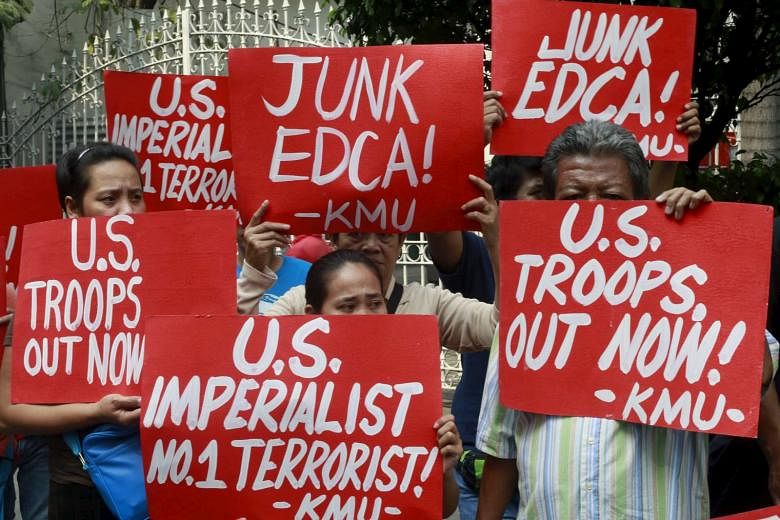MANILA (Reuters) - The Philippine Supreme Court on Tuesday declared a security deal with the United States constitutional, allowing an increased US military presence in its former colony as tensions rise in the South China Sea.
Manila has long been a staunch US ally and the pact is widely seen as important for both as the Philippines confronts an assertive China in the disputed Spratly archipelago and Washington launches a "pivot" back to Asia.
The court voted 10-4 to deny the petition of some lawmakers and activists to declare the Enhanced Defence Cooperation Agreement (EDCA) unconstitutional because it surrendered Philippine sovereignty to a foreign power.
"EDCA is not constitutionally infirm," said Supreme Court spokesman Theodore Te. "As an executive agreement, it remains consistent with existing laws and treaties that it purports to implement."
The pact was signed days before US President Barack Obama visited the Philippines in 2014. It will allow US troops to build facilities to store equipment for maritime security and humanitarian and disaster response operations, in addition to broad access to Philippine military bases.
Security expert Rommel Banlaoi said the security deal will strengthen the alliance between Manila and Washington beyond the administration of President Benigno Aquino, who steps down at the end of June.
"EDCA will be Aquino's legacy for the next administration that is bound to implement it," Banlaoi told Reuters. "It can boost US leverage in balancing China, particularly in the context of the growing US-China power struggle in the South China Sea."
The court ruling came hours before the Philippine defence and foreign ministers hold talks with American counterparts in Washington, discussing security and economic issues, including the South China Sea and the Trans-Pacific Partnership trade deal.
Dozens of anti-U.S. activists held protests outside the court, saying the ruling was "untenable" because the deal was a de facto basing agreement and will make the country "a launching pad for military intervention in the region".
Philippine military officials say there has been an increase in US exercises, training and ship and aircraft visits in the past year under Mr Obama's rebalance to Asia but the pact would take the relationship a step further.
China claims almost all the South China Sea, which is believed to have huge deposits of oil and gas, and has been building up facilities on islands it controls. Brunei, Malaysia, Vietnam, Taiwan and the
Philippines also have claims. Tension rose this month when China began test flights on Fiery Cross Reef, one of three artificial islands where Beijing has constructed airfields.

